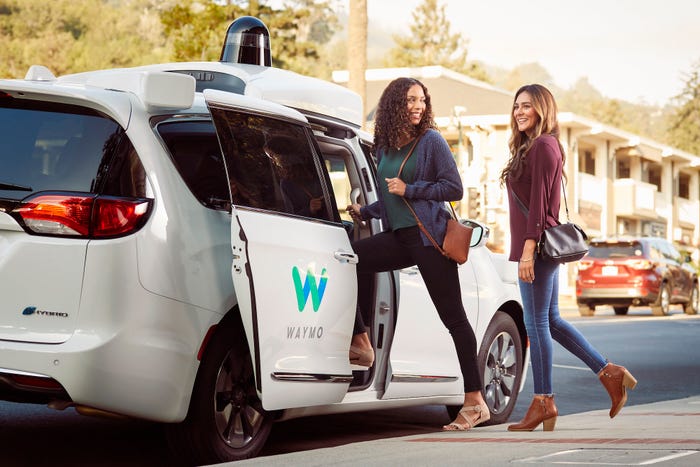One of the toughest decisions business owners are faced to make today is to decide if they need to use Artificial Intelligence (AI) in their businesses.
According to a report by Semrush, only 7% of companies don’t use AI but are looking into it. 93% of automation technologists feel little prepared for upcoming challenges regarding smart machine technologies. Doesn’t sound very promising, right?
But if you go through the same report, 9 out of 10 findings on AI is very positive or at least that’s what I noticed when I read it.
Here are just some of the findings (shh…I copied these from the same report) :
- The global AI market is predicted to snowball in the next few years, reaching a $190.61 billion market value in 2025.
- The wearable AI market size is predicted to reach $180 billion by 2025.
- The forecasted AI annual growth rate between 2020 and 2027 is 33.2%.
- The global AI chip market revenue is expected to reach $83.25 billion by 2027.
- In 2022, companies are expected to have an average of 35 AI projects in place.
- 20% of businesses say automating tasks such as invoicing and contract validation is the second most crucial use of AI.
- 80% of retail executives expect their retail companies to adopt AI-powered intelligent automation by 2027.
Businesses all over the world are already feeling a ton of pressure that they may not be adequately ready for a full blown AI implementation but at the same time they do not wish to be left out of the innovation game either.
In this post, I’d like to share some insights and information so that as a business owner, you will be able to see first hand, how some companies are engaging with Ai technology, what are the exact benefits they’re reaping, what are the key challenges they’re facing (likely you’ll be facing the same too) and what is future of AI?
Why Businesses Want To Use AI
Let’s first try to understand why businesses want to use AI in the first place. The reasons are many, but I will share with you some of the key ones:
(a) Greater Business Insights
Understanding market demands, or wanting to predict what consumers want is perhaps a common goal for many companies. Predicting or forecasting is something AI does really well so long as the right amount of data points are available, the Ai machines can literally predict business outcomes with a relatively high level of accuracy.
(b) Hyper-personalized Experiences
For retailers, AI technology is capable of making product recommendations based on shopping history and past interests.
Facebook Shop and Google Shopping are good examples of how personalization is done. So long as the customer has visited an online Facebook or Google shop, the AI bot is able to provide matching or similar product recommendations to the user with hyper personalized messages.
In fact, Amazon is another good example whereby it uses natural language processing to allow users to communicate with Alexa. Not only that, even media streaming giant, Netflix is known to use AI to make viewing recommendations and dynamically populate content based on user interests.
(c) Reduction In Operational Time
Countless operational tasks or duties can now be automated with Ai. Business owners are able to focus and use their valuable time tackling other, non-operational tasks such as strategizing and building business relationships more than before, all thanks to AI.
(d) Reduction In Cost
Many tasks which are associated with data analysis can take up hours of work by humans but for an Ai robot, it can just take seconds to do it. Time is money in the business world and so if applied appropriately, AI can help reduce significant cost of businesses to operate.
(e) Opening Up New Business Channels
New marketing channels can easily be opened with the use of Ai. Tools and softwares powered by Ai can greatly help in identifying the appropriate channels to use which can greatly enhance the overall bottom line of a company.
(f) Increasing Manufacturing
Many leading companies are using AI and robotics to ramp up the manufacturing process to deliver more output in less time. Forbes reports that Nissan is piloting the use of AI in an attempt to design new models in real time, hoping to shorten the time to market for new models.
Of course, these are just some of the examples why a business needs to use AI. There are many other reasons if one were to delve deeper.
Are there any real-life examples of AI being used in businesses? You bet!
Examples of Artificial Intelligence (AI)
I was scouring the net to discover some examples of Ai and I stumbled upon this site where it breaks down in simple point form of some examples of AI.
1.Artificial intelligence in marketing include:
-
- recommendations and content curation
- personalization of news feeds
- pattern and image recognition
- language recognition – to digest unstructured data from customers and sales prospects
- ad targeting and optimized, real-time bidding
- customer segmentation
- social semantics and sentiment analysis
- automated web design
- predictive customer service
2. Artificial intelligence in business management include:
-
- spam filters
- smart email categorization
- voice to text features
- smart personal assistants, such as Siri, Cortana and Google Now
- automated responders and online customer support
- process automation
- sales and business forecasting
- security surveillance
- smart devices that adjust according to behavior
- automated insights, especially for data-driven industries (eg financial services or e-commerce)
3. Artificial intelligence in e-commerce include:
-
- smart searches and relevance features
- personalization as a service
- product recommendations and purchase predictions
- fraud detection and prevention for online transactions
- dynamic price optimization
World Class Companies Using AI Right Now

There are thousands of companies and businesses all over which have begun using some form of AI within their companies, either in payroll management, customer services (via intelligent chatbots) and even in manufacturing (engineering and robotics).
But, are there any BIG players invested in AI? I mean really big ones? Absolutely!
Amazon
As disclosed earlier, Amazon is one of the top companies in the world who has invested both time and resources in using AI tech. Amazon employs artificial intelligence by way of delivering items to you before you ever can consider purchasing them.
They collect the information about each person’s shopping patterns and are so confident in how the information they collect helps them propose goods to their clients that they are now utilizing predictive analytics to anticipate what their customers need long before they need it.
IBM
For many years, IBM has been in the forefront lead of AI technology. Did you know 20-years ago, IBM created an AI robot program called Deep Blue? It defeated a human world chess champion for the very first time.
Other achievements of IBM in the AI scene is their creation of Debater where its Ai enabled software generated human-like debates against 2 expert human debaters.
You must have heard of Google’s self-driving technology called Waymo.
Waymo is not only able to transport people without a human driver but the AI enabled software promises to minimize accidents on the road too. Self-driving cars are no longer just fads or science fiction folks!
Self-driving cars are becoming a reality as seen on the roads of a small town in . (Even though we do have a long way yet to go before we can see self-driving vehicles on our shores :-).
Alibaba
Indeed, Alibaba, hailing from China is right now the biggest e-commerce platform in the world. They are currently selling way more products than Amazon and eBay combined.
So, how is Alibaba using AI?
They are forecasting what customers want to buy. By using natural language processing on their website, they are able to produce precise product descriptions on their sales websites.
“2030, China will be the world leader in AI technology, with 26.1% of the global market share.”
Challenges of Artificial Intelligence (AI)
No matter how trendy or cheek AI sounds, or how using AI seems to provide lots of benefits for businesses, truth be told, AI is still considered a nascent technology and does come with its own problems and challenges too. (just like any new tech in the market).
Trust Is a Key Issue
From expectations that AI will replace jobs to concerns about data privacy and security, there persists a lack of trust in AI technology. Businesses feel these challenges but somehow are doing their best to carve more confidence. Their other concerns are data privacy and cybersecurity.
Workforce Not Ready
The workforce is not equipped to manage the rise in AI technology. To ensure that AI technology functions as anticipated, we need a skilled workforce to manage it. Until businesses can upskill their workforce to meet AI-focused challenges, we will likely see some stagnation in AI adoption.
We Need…A Lot…Tons…Clean…Data
AI technology requires a wealth of clean data. AI is only as good as the data we use to train machine learning algorithms. Without a vast amount of clean data sets, AI will be limited in its ability to learn and analyze.
Huge Computing Power
AI requires large amounts of computing power. Analysis of billions and billions of data points requires super computing powers and that kind of technical hardware doesn’t come cheap. To truly take advantage of the capabilities offered by AI and big data, businesses will need enterprise-level computing resources.
The Future of AI and Businesses Using It
Amir Husain, founder and CEO of machine learning company SparkCognition, had this to say…
“Artificial intelligence is kind of the second coming of software. It’s a form of software that makes decisions on its own, that’s able to act even in situations not foreseen by the programmers. Artificial intelligence has a wider latitude of decision-making ability as opposed to traditional software.”
So, it’s really hard to say if Ai robots will someday take over the world but one things for sure, AI is poised to take over many redundant data processing tasks.
It can process large amounts of data far more quicker than a human brain can.
From the current developments that are taking shape especially with the millions being poured into R&D of AI tools and software development, businesses can expect vast changes across work lines to be disrupted by AI.
Closing Thoughts
As a business owner, you need to make an informed decision on how you want to jump on the AI ‘band-wagon’ so to speak, so that you’re not left behind. Your company can gain a distinct advantage in terms of market positioning and even cost savings and work efficiencies.
You just need to know which tools to use and how to strategize your business goals when adopting Artificial Intelligence technology. (Err…, I will cover AI tools in my next blog post.)
Did you find this article helpful? Please social shout out (buttons on your left). Or simply leave your thoughts below.
- Ooki DAO Seeks Legal Defence against CFTC Drawing on Community Support - September 30, 2022
- MetaMask’s New Beta Portfolio dApp to Provide All-In-One Access to Cryptos, NFTs - September 30, 2022
- Bitcoin’s Bullish Seasonality Muddled by Continued Slide in ‘USD Liquidity Index’ - September 30, 2022


